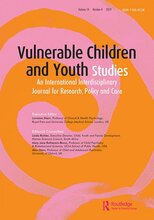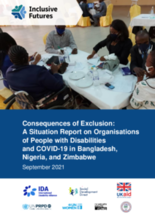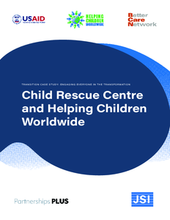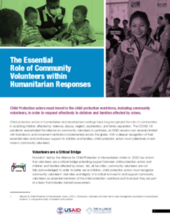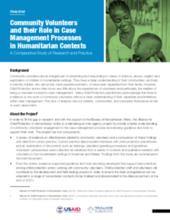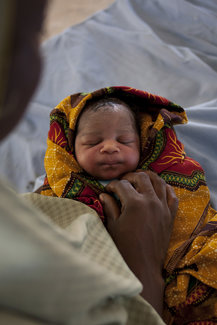

Displaying 61 - 70 of 634
In Nigeria, the 2021 integrated SIAs is being implemented with a focus to improve vaccination opportunities to areas with high population of Zero dose children (who never received any vaccination) and those who missed opportunities to be vaccinated previously.
Ten new child-friendly gender-based violence courts are being established across Ghana. These courts are expected to significantly improve the quality and accuracy of evidence of survivors, by addressing the challenges they face in the trial process.
Close to 15,000 cases of violence against children are reported to law enforcement agencies in Ghana every year, the United Nations Children Fund (UNICEF) has said.
The purpose of this article is to describe the process of testing and piloting the UNICEF protocol on children in residential care in three countries: India, Ghana, and Kazakhstan.
The COVID-19 pandemic has exacerbated inequalities and barriers to
social inclusion for people with disabilities. These experiences of social
exclusion have been felt to an even greater extent by women with disabilities
and under-represented groups of people with disabilities, leading to a range of
effects on the operations and priorities of OPDs. To address a critical gap in the
evidence base, the Disability Inclusion Helpdesk carried out a rapid assessment
of the role of OPDs during the pandemic, and how the pandemic has affected
OPDs’ operations and priorities.
The Child Rescue Centre was the first orphanage in Sierra Leone to successfully complete a transition from residential to family-based care. This case study highlights some of the key dynamics that arose throughout the transition of the orphanage and examines how those dynamics both influenced the transition and determined the type of support provided as well as the most appropriate transition strategy.
For this article from the Guardian, photographer Maroussia Mbaye spoke to women in Senegal who said "crushing social stigma, poverty and lack of traditional support systems had left them with no choice but to commit infanticide."
This is a 3-page document targeting donors, policy makers, and UN agencies regarding the roles of volunteers and how decision makers can support their roles
The Alliance for Child Protection in Humanitarian Action undertook an inter-agency project to provide a better understanding of community volunteers’ engagement in the case management process and develop guidance and tools to support their work.
This report examines the rise in child labor and poverty during the Covid-19 pandemic in three countries: Ghana, Nepal, and Uganda, the impact on children’s rights, and government responses.

